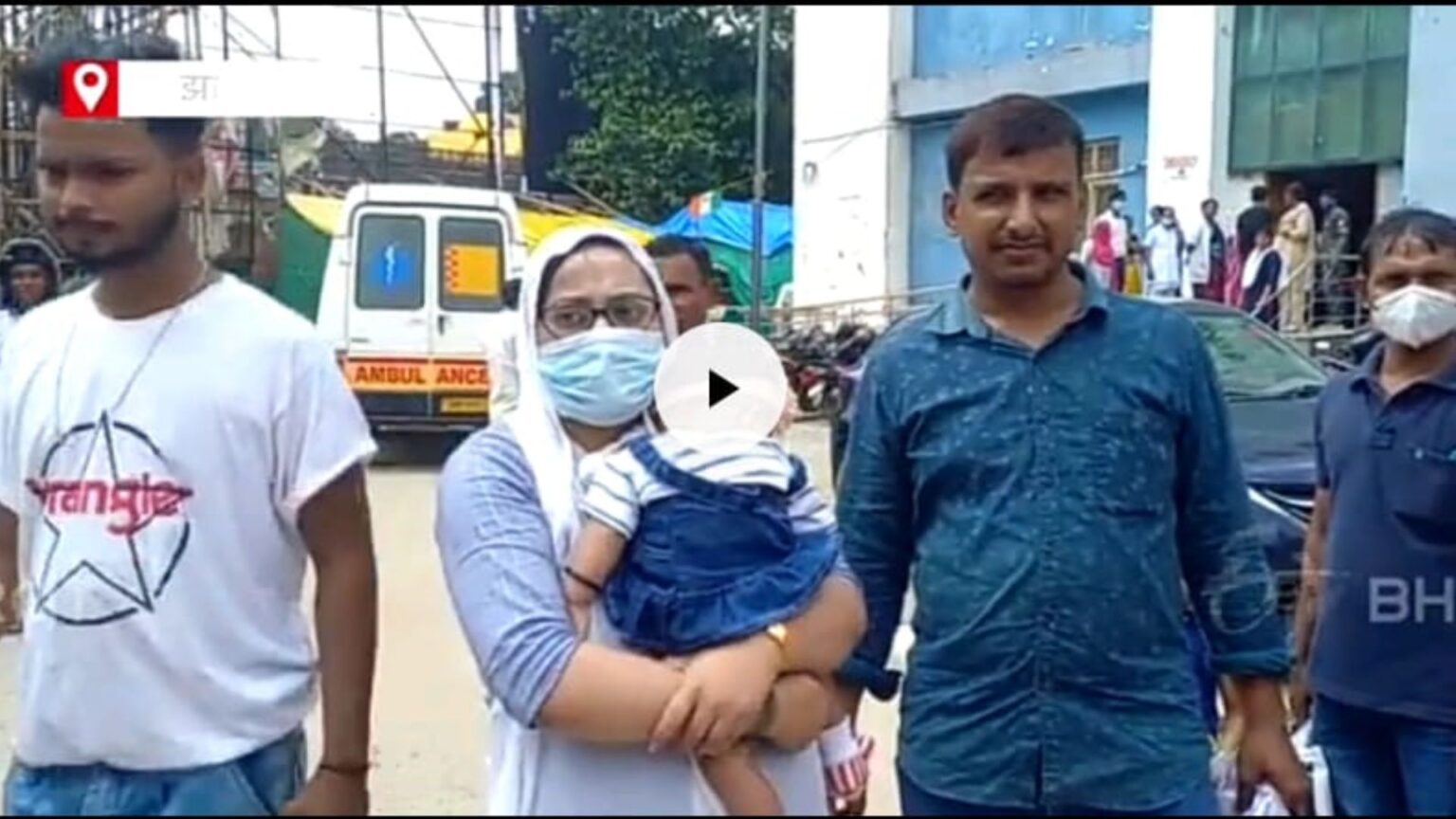“A Muslim woman in Jharkhand’s Ranchi Sadar hospital alleged that a doctor refused to treat her and called her a ‘Jihadi’. She also said that a contraceptive IUD was placed inside her uterus without her consent. Later, when she felt uncomfortable and wanted to remove it, the doctor called her a ‘Jihadi’ and accused her of wanting to have children again”.
Three months after Farhat Jabeen, a 23-year-old civil engineer, gave birth to her first child, she started complaining of excruciating pain in her lower abdomen. And when she went to the local government hospital in Sadar in Ranchi, where she had given birth in March, she was told that an intrauterine contraceptive device (IUCD) made of copper had been implanted in her body after her caesarean to prevent from conceiving for up to 10 years.
She was neither counselled nor asked for the consent. Doctors didn’t inform her until after the insertion. “We had to sign a few papers before the surgery as is usual before any medical treatment but no one bothered to explain the purpose they were for, Farhat.
Last Wednesday when she went to the hospital with her husband after she had irregular menstrual cycles for months and wanted to remove it, she said that a doctor called her “Jihadi”.
She said that a female doctor at the hospital initially dismissed what she called “excrutiating pain” as “normal,” and later went on to make some rather Islamophobic remarks about her. “Isko koi problem nahi, ikso bus doosra bacha karna hoga, 6 mahine hogye hain, conceive nahi kar pa rahi hogi isliye yaha aayi hai. Ye jihadi hai, ikso bus bachche paida karna hai. Ye ‘jihad’ karne ayi hai yaha.” (She is perfectly fine. She is only here, as she desires another child. She has come here only because she is not conceiving. She is a jIhadi. She only wants to birth children. She has come here for jihad),” she recollects the doctor telling her.

“It was only after struggling with pain and excessive bleeding that I decided to visit the hospital, and was shocked to learn about the copper T insertion because they had done the procedure right after the caesarean without asking for my consent,” alleged Farhat.
While speaking with an associate with FOEJ over a phone call, Farhat said that she was not planning any child, as she tied the knot with 32-year-old Mohammad Tayyab Alam just a year ago.
Farhat told that she was made to sign a few documents before her C-section delivery in March but no one had told her that it had to do with any other medical treatment, or in her case, the insertion of the copper T cell, a contraceptive implant used in women.
WHAT GYNAECOLOGISTS SAY ABOUT COPPER – T
According to one gynaecologist Karishma, “Copper T is a contraceptive implant used to create a birth-delay of five to ten years in females. Occasionally, there can be few side effects like severe pain in abdomen and irregular bleeding in the initial months of insertion.”
Another experienced gynaecologist Astha Singh from AIMS, Delhi, explains that Copper-based intrauterine devices may have side-effects ranging from nausea and cramps to uterine infections to even causing life-threatening ectopic pregnancies in some rare cases. As stated by Dr Singh, copper T is nearly 100% effective as a reversible contraceptive, although in a very rare chance, if pregnancy occurs with an IUD, it’s likely to be ectopic. (“An ectopic pregnancy occurs when a fertilised egg implants outside the uterus, usually in the fallopian tube. The fallopian tube can’t extend like a uterus to hold a growing embryo. This can cause maternal haemorrhage and at times costing a woman’s life).
One woman in Tamilnadu reportedly died, after undergoing a treatment for four days to stop the bleeding caused by an IUD. As it could not be suspected that she was pregnant at the time of insertion supposedly making it a fatal condition for the woman.
We also spoke with an AIIMS Dr. Siraj Alam, who confirmed that post implantation, in some women, no significant detectable changes are found. They may feel it like a regular thing.
However, Farhat said, for the last three months, she was bleeding abnormally and feeling severe pain during her menstruation.
In the month of June, I menstruated for 10 days. The next month, it went up to 14 days. From August 13, it lasted for a month, said Farhat. “During my menstruation days, I have been feeling so weak that I could barely stand. I was finding it difficult to even walk. I was feeling dizzy that I’d only keep lying down, unable to do any work. A sharp pain lingered in my abdomen and around my waist, she added further.
We also tried to contact Sadar Hospital, Ranchi through multiple calls and mail, but they chose not to comment on the issue, as of now. A response is still awaited, as we publish the report. However, in an interview with @ETVBhartJharkhand, the female doctor of Sadar hospital refuted all claims made against her. She stated, on behalf of the hospital, that Copper T implantations are never compelled. We always obtain permission from the party.

However, if we take a look at some reports in the recent past which show some sections of government hospitals bypassing the consent & counselling procedure in the implant in order to meet family planning targets made by the state.
More so, as per @TheHindu report’s statistics IUCD’s usage in the public healthcare system has risen from 1.8 per cent to 8 per cent and its potential is as high as 40 per cent with the government’s aggressive plan to institutionalise it as one of the methods of family planning. It is a government mandate that every woman, who delivers a child at a government-run hospital, should be consulted about family-planning alternatives and should be offered the one she wants. To encourage mothers to give birth at public hospitals, the central government even offers financial incentives under the Janani Suraksha Yojana (JSY).
However, as the government’s highly progressive programs are put into action, reports of tribal and rural women complaining about forced implants are also appearing. And, if incase the woman is Muslim, there is an additional challenge of Islamophobia to be overcome because of the misconception surrounding that Muslim in general are more fecund than their non-Muslim counterparts.









